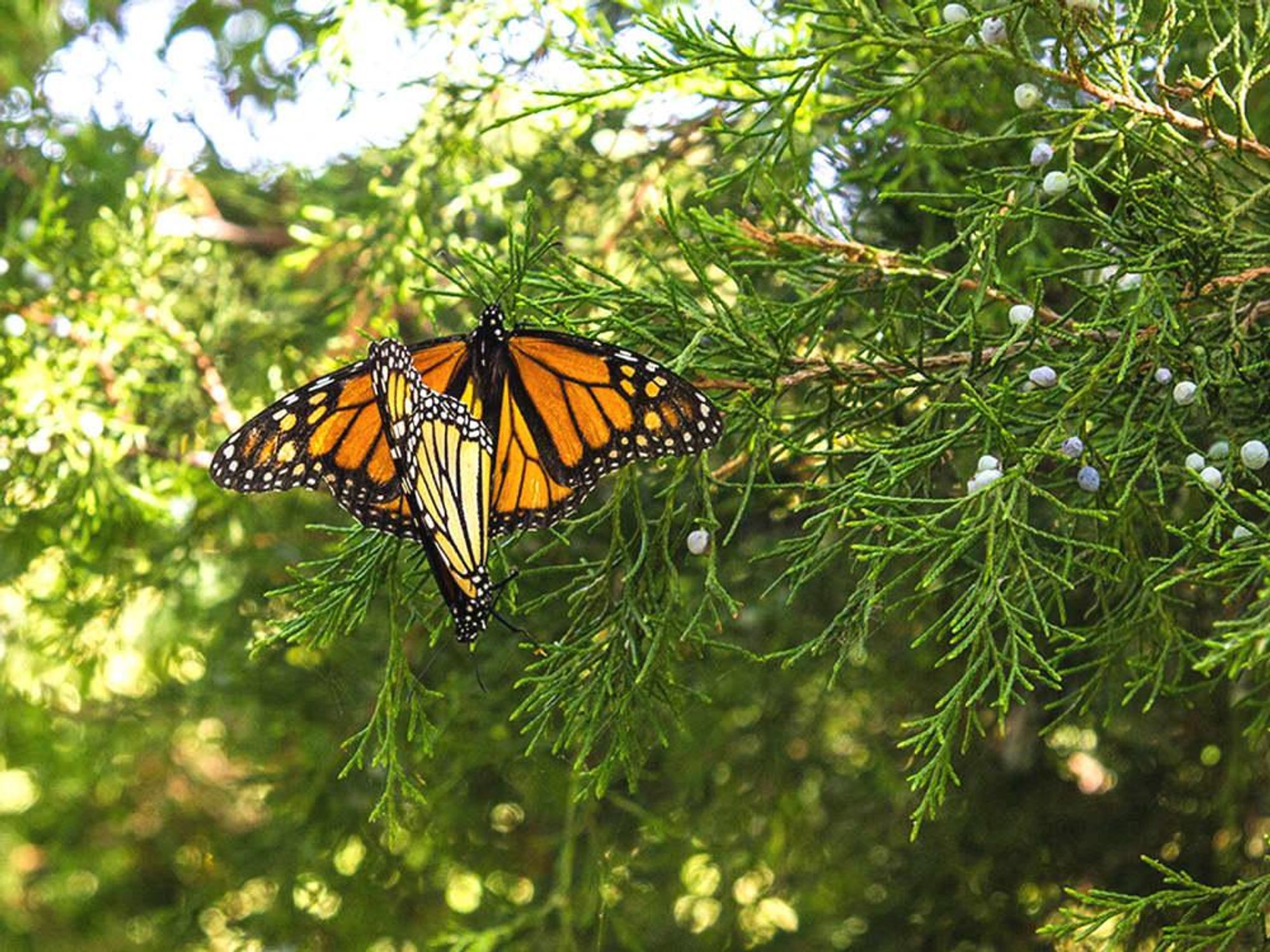Seed Bombs Away
Fort Worth bike ride drops friendly bombs on bees and butterflies

Those who love bees and bicycling will want to sign up for the Great Seed Bomb on November 14, a 15-mile fundraiser and bike ride that benefits bees, monarchs, and other pollinators at Clear Fork Food Truck Park in Fort Worth.
Riders will participate in a practice called "throw and grow." They'll toss "seed balls," containing seeds for milkweed and wildflower plants, to bloom in the spring.
Ride founder Jillian Jordan says that the goal in planting native seeds is to support "our bee and butterfly friends," as well as raise money and awareness.
The bee population has dropped from 6 million beehives in 1947 to 2.4 million today. Bees aren't the only pollinator at risk: 90 percent of the monarch butterfly population is gone, due primarily to the use of glyphosate (Roundup), an herbicide destroying the monarch habitat, which consists of milkweed and wildflowers.
If there is no milkweed, there will be no monarch. It's where they lay their eggs, and monarch larvae feed almost exclusively on milkweed.
Jordan is watching the turnout for Fort Worth, with the goal of expanding to other cities. "If the pilot ride is successful, we have plans to take this event to Austin, Houston, and other large cities along the migratory path of the monarch," she says.
The ride will follow a route along the Trinity Trail/Clear Fork natural area. It's an all-ages event, giving everyone a chance to contribute. Pre-registration is $35.50 for adults and $16.50 for kids, and $39.50 the day of the event. Participants get T-shirts and fanny packs, and there will be prizes awarded for the best bee and butterfly costumes.
If you'd like to participate but don't want to ride, you can attend a seed ball-making party on November 7 at the Botanical Research Institute of Texas (1700 University Dr.). From 11 am to 3 pm, participants will build 3,000 seed balls, made of seeds, organic compost, and clay.
And everyone can turn their lawn into a monarch-friendly habitat by curtailing the use of pesticides and going with native plants.
"With a problem this widespread, it's easy to feel powerless," Jordan says. "In testing incremental solutions that are tangible, digestible, and scalable, perhaps we can feel empowered in the face of even the biggest environmental problems."
